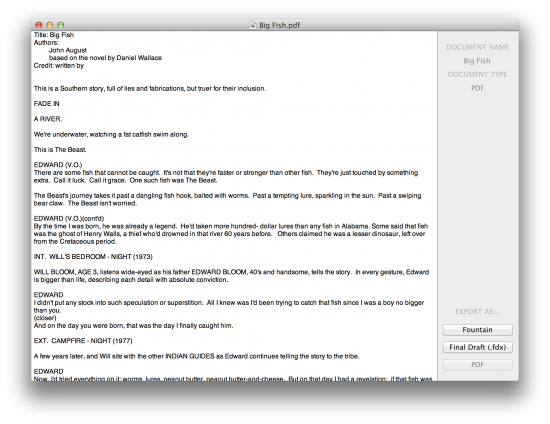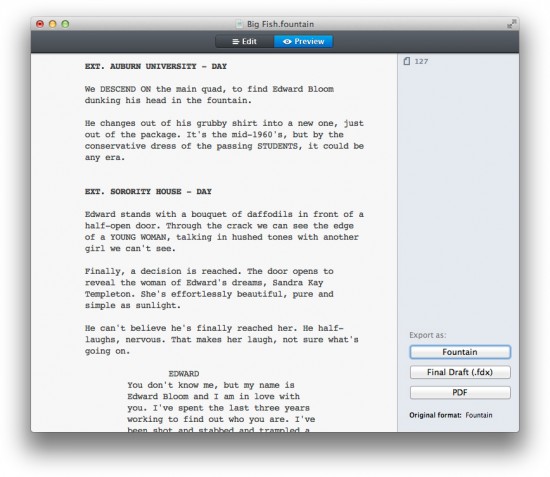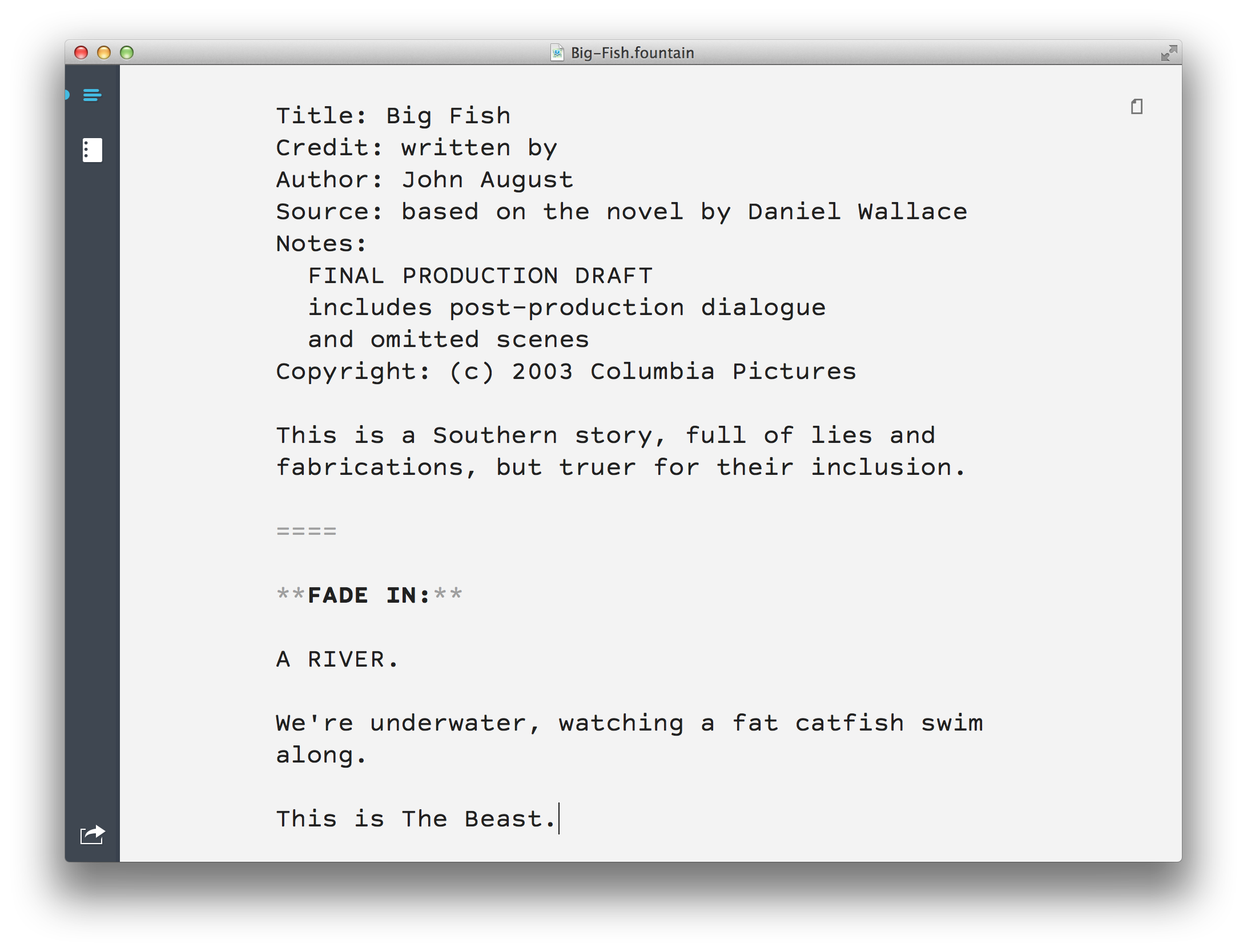We had [57 entries](http://johnaugust.com/threepagelive) for the Three Page Challenge we’re conducting on May 15th.
I wondered which apps these screenwriters were using, so I checked the metadata for each file. ((Mac Nerds: After a lot of Googling, I couldn’t find a way to display creator information for each file in a folder; I had to do them one-by-one using Finder’s Get Info. If you have a command-line trick for this, I’d love to know it.))
| **App** | **# of Entries** | **% of Total** |
|—————|————–|———–:|
| Final Draft 8 | 18 | 32% |
| (unclear) ((The (unclear) category is for PDFs that don’t have a recognizable creator. For example, some PDFs show up as being from Preview on the Mac, which is primarily a reader but can be used to paste together multiple files.)) | 7 | 12% |
| Fade In | 7 | 12% |
| Final Draft (Windows) | 6 | 11% |
| Slugline | 5 | 9% |
| Final Draft 9 | 4 | 7% |
| Screenwriter | 3 | 5% |
| Celtx | 2 | 4% |
| Final Draft 7 | 2 | 4% |
| Highland | 1 | 2% |
| TextEdit | 1 | 2% |
| Word | 1 | 2% |
| **Total** |**57** | 100% |
Adding up its various incarnations, we find that Final Draft created just over half the entries. That’s about what I would have expected.
But I find it interesting that so many users have stuck with Final Draft 8, rather than version 9. There are still holdouts with version 7 as well.
I was happy to see six dedicated screenwriting apps (Final Draft, Fade In, Slugline, Screenwriter, Celtx and Highland) among the entrants. I didn’t find any Adobe Story or WriterDuet scripts. ((If you submitted a script written in Adobe Story or WriterDuet, let me know and I’ll amend the figures.))
Writers submitting to the Three Page Challenge are, almost by definition, listeners to the Scriptnotes podcast, in which we’ve discussed Final Draft, Fade In, Slugline and Highland among other apps. I wonder to what degree that has influenced their choices.
Three Page Challengers are also generally aspiring screenwriters, rather than working pros. To me, that makes entrants more likely have recently purchased software (or web-based subscription services) than established writers, who tend to stick with what they know.
The online submission for Three Page Challenges worked well enough that we’ll keep using some version of it. In the next incarnation, we’ll ask upon submission which app the writer used.


